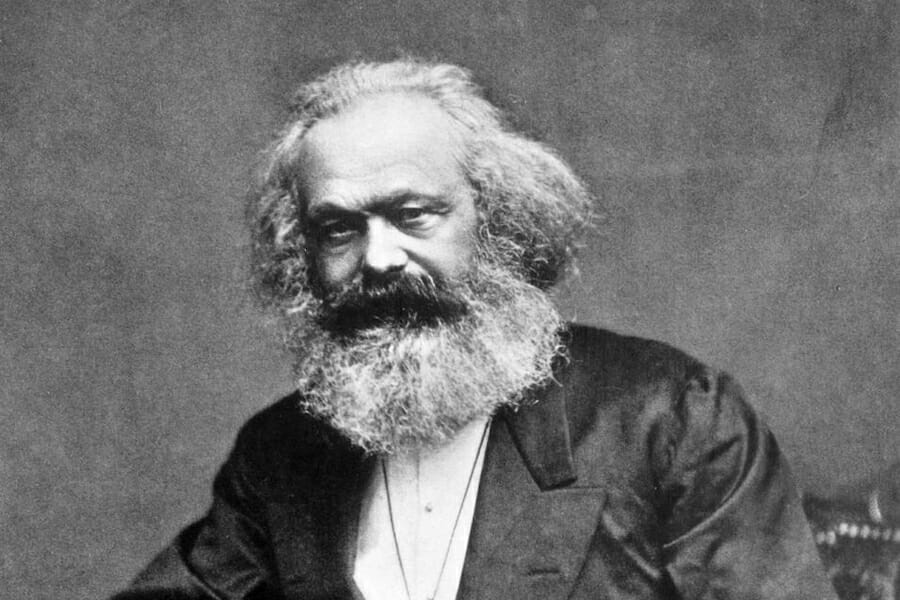
Books
Book Review: ‘Marx’
Kojin Karatani’s Marx: Towards the Centre of Possibility (translation by Gavin Walker) is not an introduction to Marx but a “return to Marx” argument that combines Japanese Marxian economics and communication studies to assess critical views of labor power, production, and surplus that many Marxists take for granted as starting points. Karatani also places himself into a debate of the human subject, dialectics, and language that attempts to contextualize the greater philosophy of Marx to analyze where he diverges from Friedrich Engels and, ultimately, Friedrich Hegel.
The work is one of many “returns” to Marx, often done in an attempt to wrest his works away from more humanist New Agers attempting to shorne Marx of his, as the book calls it, “economic determinism” and the Dialectical Materialists, whose philosophy is necessarily connected to the politics of Lenin and the sociology of Engels; and who’s legacy, now, is irrevocably connected to the state socialists of the Second and Third Worlds. An ideological war between “Early” Marx Humanism and “Late” Marx Political Economy.
The book’s subtitle Toward the Centre of Possibility is explained thusly, “[it] was an attempt to read Capital from the perspective of literary criticism. [The phrase] indicates a form of meaning or signification that is there despite not being explicitly specified in the text. In other words, it exists more in the margins’ than in the actual ‘center.’”
Translations and Walker
While many of Verso’s books generally appeal to people at any level of comprehension, readers new to Leftist writing may be lost in Karatani’s Marx. It is, however, an important read for anyone who is involved in Japanese studies or Marxist writing. It’s the kind of translation a person such as myself, a student of Japanese Leftist history has been looking for more of. A translation of work as influential to Japanese academics as Karatani’s, no less one by the prominent Japanese history and political writer Gavin Walker, is niche but incredibly exciting within Japanese studies. It should also be a good addition to the libraries of anyone that already reads Verso publications.
Good translations are also much more than the texts themselves. This publication includes great passages from Gavin Walker and Kojin Karatani before the book begins, these all help with the reading proper as well. Even the notes in translations can be as interesting as the texts themselves.
While previous books I’ve reviewed can easily be read by anyone, this book requires prior reading. Marx’s Capital and, maybe, the 1844 Manuscripts or The German Ideology should be read first, especially considering the book’s argument to read Marx independent of Marxists.
Another work authored by Gavin Walker, The Sublime Perversion of Capital, is also useful for understanding this book. While Karatani uses Unoism clearly and while the introductions and prefaces explain who Uno is, it helps to see Uno’s theory as Walker explains it in his book.
Critique of Dialectical Materialism
One of the book’s biggest arguments is its critique of Dialectical Materialism. There isn’t much of a content argument against it, but in 1973 that wasn’t a discussion people really had; at that point, people were just interested in distancing Marx from anything born out of State Socialism.
A very simplified version of the argument would be: Dialectical Materialism comes more from Engels and not Marx. Marx and Engels had a disagreement over questions of human subjectivity vs animals. Both acknowledged that people have to imagine their creations before creating them (such as an architect drawing plans) but Marx saw it as evidence humans lacked the ability to construct on pure survival like how a bee would. This means, to Marx, representation does not exist a priori of humans but instead comes out of lacking qualities. This means Engels thinks Socialism would allow man to overcome nature whereas Marx does not. Marx sees problems as something that can be solved, Socialism would come from a natural course of proletarian problem solving. Rejecting the structure building in Engel’s thoughts on Socialism. Engels, and by extension, the Dialectical Materialists, absolutize the human subject in a teleological way, they perceive things like Vanguard Parties in terms of purpose they serve instead of the cause that leads to them. This comes out of Western philosophy (metaphysics) that Karatani thinks Marx is trying to subvert, thought he acknowledges other readings of Marx. Other readings of Marx necessarily lead to Authoritarianism (Stalinism) because of their teleological frameworks. Finally, revolutions are not built but caught up with.
“Stalinism” is a term that’s only useful when defined. There really aren’t Stalinists in the way there are Maoists or Hoxhaists. Usually, it’s philosophy’s analysis of the Soviet government but overuse tends to lead to Marxist straw-manning or misrepresentation of the USSR. Karanti’s Stalinism seems to mean a few things. On page 65, it is used as a stand-in for Lenin’s thought and its inheritors; which I think creates the same ideological presuppositions Karatani warns the reader against. On page 100, it describes Karatani’s idea of the anti-humanist Marxist. In context, I think “Stalinism” is just a way to label movements or ideas as sacrosanct. Karatani directly states, “Read any other way, Marx’s texts will always necessarily invite the Stalinist reading.” This is a shortcut to vindicating his position, because he can change the goal from proving his opposition is wrong to claiming it’s Stalinist. This plays into the book’s argument that is as much about chipping Engels off of Marx as dealing with Engels himself. It’s where the book really gets into a criticism of Engels that Karatani’s thought shines.
I still have an issue with Karatani’s critique of the telos in Socialism, however, specifically regarding the idea of building vs catching-up-with revolution. While this could be read in the fatalistic sense—as the Japanese called it “waiting around for a crisis thesis”—I think it’s more likely Unoisms own tendency to stay out of politics. As economist Makoto Itoh put it, “One of Uno’s basic assertions was that Marxian economics should be a relatively autonomous social science, independent of ideology and political claims.” When Marxism as an ideological concept was becoming as toxic as it was in post-1972 Japan, an argument against active revolution building was likely attractive.
The problem with the criticism itself is that it places too much emphasis on the building of Socialism as trying to construct an ideal. All of the Authoritarian Marxists (State Socialists) used a theory of truth where ideas only matter based on how they do in practice. Mao said, “One is its class nature: it openly avows that dialectical materialism is in the service of the proletariat. The other is its practicality: it emphasizes the dependence of theory on practice, emphasizes that theory is based on practice and in turn serves practice.” I agree this way of thinking is often self-justifying and can lead to bad outcomes, but I think reforming this theory of truth is the greater issue. In this regard, I generally defer to the Truth Process of Alain Badiou.

